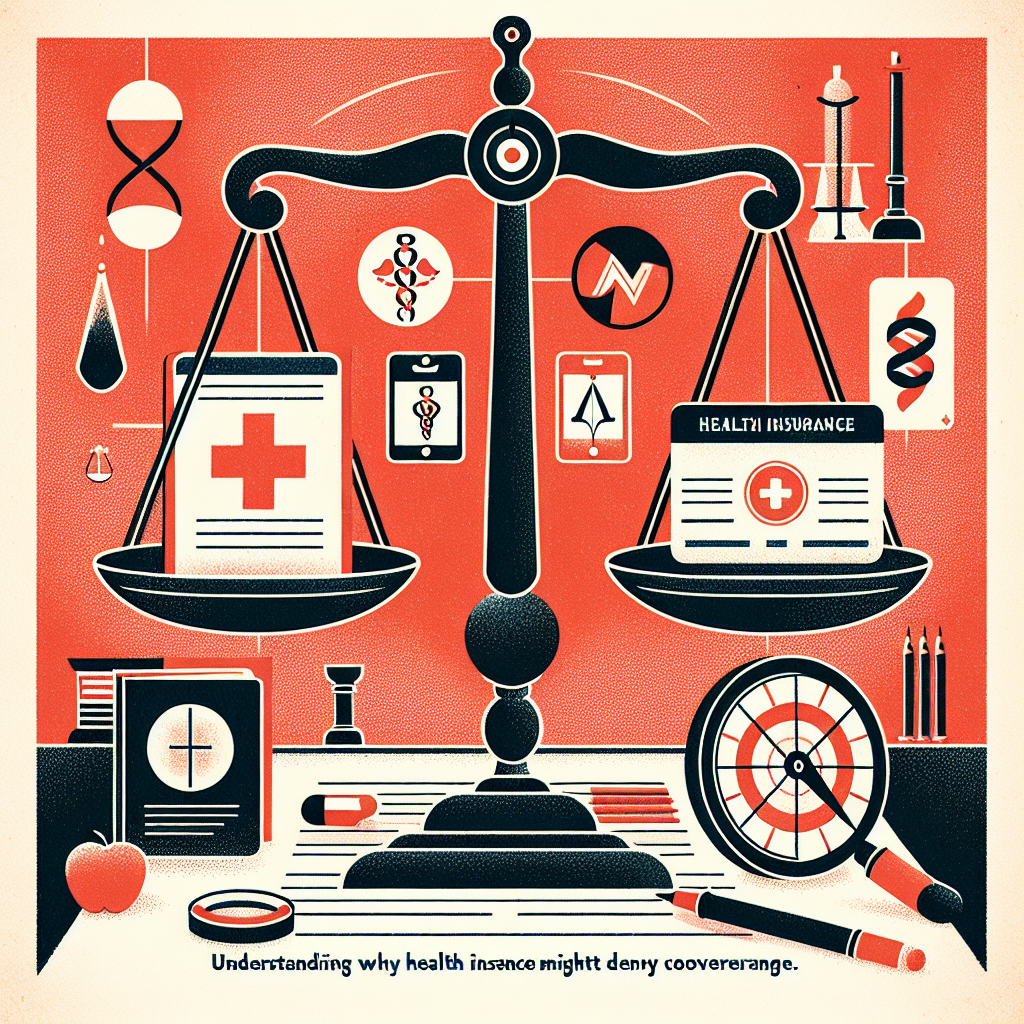Filed under Health Insurance on
Understanding Why Health Insurance Might Deny Coverage

In the complex world of healthcare, understanding why health insurance might deny coverage is crucial for anyone navigating medical expenses. While health insurance is designed to ease the financial burden of medical care, denials can leave patients confused and frustrated. This article explores common reasons for coverage denial, providing insights that can help individuals better navigate their health insurance policies effectively.
Common Reasons for Health Insurance Denial
1. Pre-Existing Conditions
One of the most discussed reasons for health insurance denial is related to pre-existing conditions. Although the Affordable Care Act (ACA) prohibits denying coverage based on pre-existing conditions, certain plans, especially short-term or non-compliant ACA plans, might circumvent this protection. Prior to enrolling, it's essential to thoroughly understand what your plan covers regarding pre-existing conditions to avoid unexpected denials.
2. Out-of-Network Providers
Another frequent culprit of denial involves using out-of-network providers. Insurance plans often have contractual agreements with a network of healthcare providers. Seeking treatment outside this network can lead to coverage denial or higher out-of-pocket costs. Always check your insurer’s network before scheduling services to prevent these issues.
3. Lack of Prior Authorization
Many insurance plans require prior authorization for specific procedures or treatments. Failing to obtain this authorization before receiving care could result in a denial. Make it a habit to verify if the medical service you need requires prior authorization and coordinate with your healthcare provider to secure it.
Procedural Errors and Omissions
1. Filing Claims Incorrectly
Even minor mistakes in filling out insurance claims can lead to a denial. From incorrect procedure codes to missing documentation, any error can prompt insurers to reject a claim. Meticulous attention to detail and comprehensive documentation are key to avoiding claims processing errors.
2. Missing Information
Omissions in claims can lead insurers to question the validity of a claim. Providing comprehensive information and maintaining organized records of all medical encounters ensures smoother processing. Double-check claims for completeness to reduce the risk of denial due to missing details.
Understanding Policy Limitations
1. Exceeding Benefit Limits
Every insurance policy comes with specific limits on coverage. Whether it's annual caps on certain services or lifetime limits on others, exceeding these limits often results in denied claims. It's wise to be aware of these limits to manage both expectations and finances effectively.
2. Non-Covered Services
Insurance policies detail covered and non-covered services. Procedures deemed elective or experimental by insurers may not be covered. Understanding the list of non-covered services in your policy can prevent unpleasant surprises.
Appealing a Denial
1. Review the Denial Letter
Should you receive a denial notice, the first step is to carefully review the letter. Insurers provide specific reasons for denial, and understanding these reasons is essential for a successful appeal.
2. Gather Supporting Documentation
Successful appeals are often supported by comprehensive documentation. Collect medical records, doctor’s notes, and any correspondence related to the denied claim to fortify your appeal.
3. Follow the Appeal Process
Insurance companies have laid out procedures for appeals. Following these procedures meticulously, including deadlines and required documentation, is crucial for a positive outcome. Don’t hesitate to request help from a healthcare advocate if needed.
Industry Trends in Insurance Coverage
1. Increasing Complexity of Plans
Insurance plans are evolving, becoming more complex and intricate. High-deductible plans and the increased use of health savings accounts (HSAs) are now commonplace. Familiarity with these trends can aid in making informed decisions about coverage.
2. Shifts Towards Value-Based Care
The healthcare industry is seeing a move towards value-based care models, which emphasize quality over quantity. Understanding how this shift affects coverage and reimbursement might help align expectations with insurance providers’ criteria.
Expert Opinions and Recommendations
Healthcare professionals and industry experts emphasize the importance of patient education. Dr. Jane Smith, a healthcare consultant, suggests, “Proactively understanding your insurance plan and reaching out with questions before receiving care can save time, money, and stress.” Engaging with resources like workshops, online forums, and assistance from insurance representatives can be invaluable.
Conclusion
Understanding why health insurance might deny coverage can be the key to effectively managing and utilizing your health benefits. By being proactive, informed, and prepared to address potential challenges, individuals can navigate the complexities of health insurance with greater ease and confidence.
In a landscape as intricate as healthcare, knowledge is power. Familiarizing yourself with the ins and outs of your coverage will not only help avoid denials but will also empower you to make informed decisions about your health and financial future.





